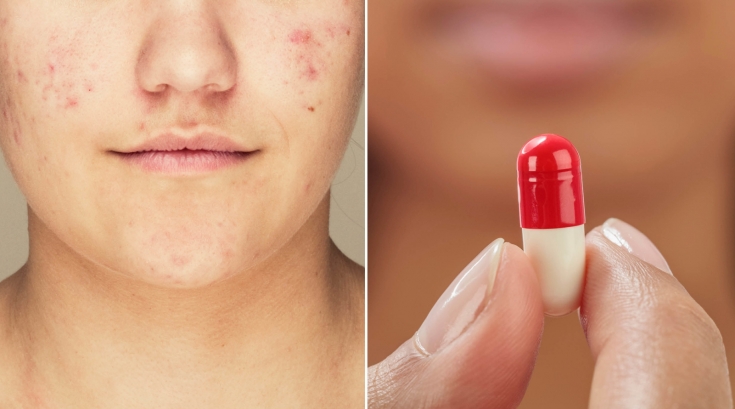Antibiotics have been used as an effective treatment for acne for many years, as the disease was thought to have an infectious etiology. However, current research shows that Propionibacterium (P) acnes is only a participant in the pathophysiological cascade of acne development, and is normally found in the hair follicles of almost every person. Read on estet-portal.com why dermatologists should minimize the use of antibacterial drugs for the treatment of acne, and what risks the doctor exposes patients to by prescribing antibiotics.
Why antibiotics should be avoided in acne treatment
Modern studies show that acne is not the result of a bacterial infection, since P. acnes is found in the follicles of almost every adult, and the severity of acne does not correlate with the level of contamination of this bacterium. According to statistics, dermatologists prescribe a huge amount of & nbsp; antibiotics for systemic use, while not understanding and not taking full responsibility for their decision.
No one talks about giving up antibacterial therapy for acne because it is often the only effective treatment option. However, the appointment of antibiotics should not be uncontrolled, and become mandatory in the treatment of every patient with acne.
Acne Treatment:
• antibiotics are no longer effective in treating acne;
• best alternative to antibiotic therapy for acne treatment;
• effective acne treatment: without retinoids, nowhere.
Antibiotics are no longer effective in treating acne
Dermatologists don't often have to think about antibiotic resistance, as many believe that new drugs will appear every year, but this, unfortunately, is not the case. In addition, the latest new acne antibiotic − daptomycin was launched in the late 1980s. Topical erythromycin should be completely avoided for the treatment of acne because P. acnes is so resistant to it that treatment is almost ineffective. And all that a dermatologist achieves in the end is − this is even greater resistance of microorganisms to this drug. Clindamycin loses its effectiveness after about two months if it is not combined with benzoyl peroxide.
It is very important when prescribing antibiotics to warn the patient that this is a temporary treatment, and to take care of a strategy for stopping them.
Often, when antibiotics are discontinued, acne worsens, which provokes patients to self-prescribe antibiotics.

Best Alternative to Antibiotic Treatment for Acne
Benzoyl peroxide reduces the development of resistant organisms when used in combination with topical or oral antibiotics. But many patients do not like this drug, because it not only dries the skin and contributes to its peeling, it also discolors the tissues. Therefore, sometimes dermatologists go on about patients by not prescribing this drug.
Besides benzoyl peroxide, it is important to consider any other acne treatments that will allow you to forego antibiotic therapy. For example, spironolactone and oral contraceptives are recommended for women.
Effective acne treatment: without retinoids, nowhere
Regardless of which treatment method is prescribed for one or another patient with acne, it is recommended to use retinoids in complex therapy.
Retinoids have a pronounced effect on the growth and differentiation of epithelial cells.
Under the influence of retinoids, the excessive growth of the epithelium of the ducts of the sebaceous glands decreases. As a result, dead cells stop accumulating and easily come to the surface of the skin without clogging the duct. In addition, retinoids reduce sebum secretion, and have an anti-inflammatory effect, which makes them indispensable in the treatment of acne.
More interesting stuff in our telegram.







Add a comment